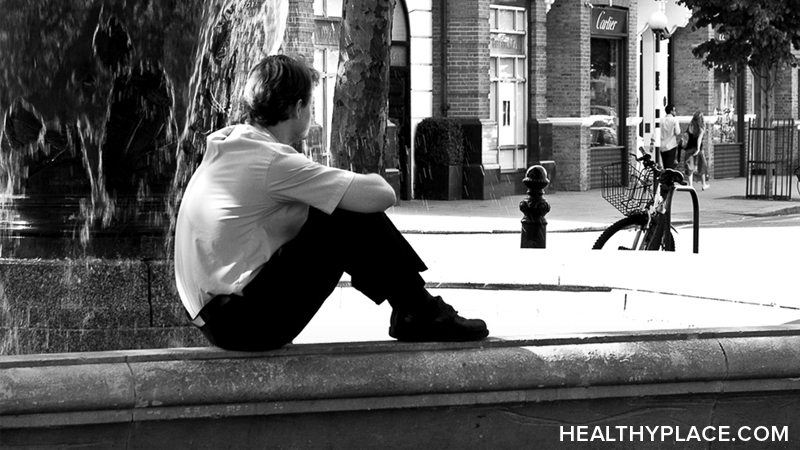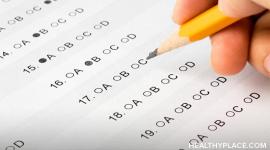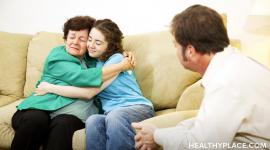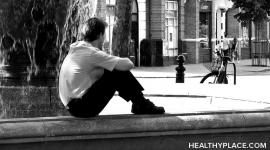Social Anxiety Disorder (Social Phobia) Symptoms

Symptoms of social anxiety disorder (aka social phobia) are caused by anxiety and fear in social or performance situations. Social anxiety can negatively impact a person's everyday life as they work to avoid any situation that will bring on social phobia symptoms.
Social anxiety disorder symptoms range from mild (blushing or stammering) to severe (being unable to speak in some situations) and may affect activities like:
- Using a public restroom or telephone
- Sending back food in a restaurant
- Meeting new people
- Writing or eating in front of others
- Making eye contact
- Entering a room in which people are already seated
- Dating
A person with SAD will constantly worry about experiencing their social anxiety disorder symptoms, so will avoid any situation which they fear will bring about their symptoms. This intense worry can make anxiety symptoms worse, creating a vicious cycle where the anxiety feeds on itself.
Although researchers aren't sure of the causes of social anxiety disorder, the symptoms of social phobia can affect a person of any age. More women than men are afflicted with this disorder.
Social Anxiety Symptoms
Social anxiety is normal for some people in social situations and in and of itself does not indicate social anxiety disorder. Social anxiety symptoms include:1
- Blushing
- Sweating
- Trembling or shaking
- Fast heartbeat
- Upset stomach, nausea
- Shaky voice, difficulty talking
- Muscle tension
- Confusion
- Cold, clammy hands
- Difficulty making eye contact
Social Anxiety Disorder Symptoms
It is only once the symptoms of social anxiety become severe that social anxiety disorder may be diagnosed. If social anxiety symptoms start to impact daily functioning, that approaches the level of social anxiety disorder.
According to the latest version of the Diagnostic and Statistical Manual of Mental Disorders (DSM-IV-TR) the symptoms used to diagnose social anxiety disorder are the following:2
- A marked and persistent fear of one or more social or performance situations in which he or she is exposed to unfamiliar people or to possible scrutiny by others
- Exposure to the fear produces anxiety which may be at the level of a panic attack
- An understanding that the fear is unreasonable
- Avoidance of the situations that produce anxiety or the situations are endured with great distress
- The social phobia symptoms markedly impair a person's daily life or the person shows great distress at having the phobia
- The social anxiety disorder symptoms are not better accounted for by another disorder or medical condition
- The social anxiety disorder symptoms are not due to substance use
The DSM-IV-TR also notes the following conditions are associated with social anxiety disorder symptoms:
- Depression
- Sexual dysfunction
- Physical symptoms without cause (somatic)
- Addiction
- Anxious, fearful or dependent personality
- Mutism
Social anxiety disorder is also considered a precursor to agoraphobia where anxiety, to the level of panic, occurs when you are alone in public situations from which you would find it difficult to escape.
APA Reference
Tracy, N.
(2012, January 14). Social Anxiety Disorder (Social Phobia) Symptoms, HealthyPlace. Retrieved
on 2024, April 26 from https://www.healthyplace.com/anxiety-panic/social-anxiety-disorder/social-anxiety-disorder-social-phobia-symptoms



